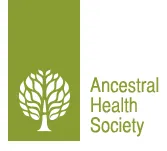
Ancestral Health – Episode #1
August has been so busy! After an information packed weekend with Dr. Bredesen in California, I was home just long enough to catch up, pack and head to Boulder (first time!) for the 2016 Ancestral Health Symposium. I went eager to hear some new thoughts in evolutionary medicine, a paradigm that postulates much if not all chronic disease arises from a mismatch between our modern lifestyle choices and the lifestyle in which we might thrive, the lifestyle our evolution has selected us for. Obviously we don’t want to throw away the keys to the modern world and head to the nearest cave, but what can we learn from this model, and how can we modify our modern choices to gain some of our ancestor’s vigor? (Yes, they mostly died young, but those that survived trauma, infection, and childbirth, lived to the age of 65 or 75 or even more, and their skeletal remains lack evidence of our modern array of chronic diseases. Our ancestors’ challenge was acute illness, our modern challenge is chronic, non-infectious illness: obesity, diabetes, cancer, heart disease, etc.)
My first favorite (there were many) presentation was by Aaron Blaisdell (Neuroscience Professor and researcher, UCLA) on Food and Cognition. He addressed the question of whether refined foods impair cognition or alter mood, and then why do we eat them and finally how can we learn to not eat them. He has done and reviewed a number of rat experiments (rats being more comparable to humans than mice) that show the effect of a diet with more refined carbohydrates: refined-fed rats are more impulsive, less vigilant, have a poorer working memory and increased leakiness of the blood-brain barrier. Nutrient dense foods on the other hand had positive effects on both mood and cognition. But we know that, right? Sugar is not our brain’s friend, and probably not grains in the form of breads and sweets. (When I used to eat a sandwich for lunch I would suggest that sandwiches cause sleepiness, but that could have been by so many different pathways, I can’t even go there.)
Here’s Almost the Best Part
After describing our impaired brains, you have to wonder why we eat these doughnuts and sandwiches. Blaisdell went through a list of eight motivators for eating refined foods, including the observation across many species that a supernormal stimulus (whether it’s a giant egg presented to a mama bird or a super-sweet bowl of ice cream to one of us) catches our attention and draws us in more than just a normal stimulus. We actually are species-trained to seek calories, just in case winter is coming, so a sweet tooth or two is hardwired. When there are multiple cues, we turn to the most salient: the big box of cocoa puffs with the red heart (Heart Association approved!) instead of a carton of eggs.
Here’s the Best Part
How on earth do we go about breaking food habits once we have them? He gave several strategies, some of which I and probably you have spontaneously discovered for ourselves.
- If you ignore the cue, the attraction loses its allure. You just have to train yourself for the first ten? 20? times to walk by the ice cream.
- A researcher named Seth Roberts suggested that if you eat calories with NO flavor it changes the body’s pre-set appetite routine: he would eat 2 Tbsp of extra light olive oil daily with his nose clipped. You can see the research on his website Sethroberts.net
- If you can devalue the reward: note the adverse symptoms or remind yourself mentally of the price of such an indulgence.
- Re-assign the identity of toxic foods: when you are paying for gas in a mini-market and say to yourself, “No food to eat in this place.”
- Cultivate new eating habits, a day at a time: “Three eggs for breakfast, first sign of morning hunger.”
- Eat mindfully: slow down before you eat. Take three deep breaths, count at least ten chews per mouthful, be sure you take as long to eat as you took to prepare the food. I know there are others.
- Choose your meal-mates wisely!
- Redefine yourself! Take pride at a party that you’re the one who never touches the cookies or drinks the soda.
I recognize #3 (“Wow, I really do get a rash if I eat gluten several days in a row, what’s going on INside?”) and #4 (“I certainly like this café’s coffee, but I would never eat a muffin or a croissant.”) and #8: no one I know well would ever offer me gluten!
I’ll do my best to share some of the other pearls of wisdom I found exciting from Ancestral Health. Next up will be a couple of the posters from the “poster presentations,” mine and Dr. Jeffrey Gerber’s are the two I have to show you.
Next summer, I think AHS2017 will be in the Northwest, it’s great material suitable for anyone interested, physician or not.

